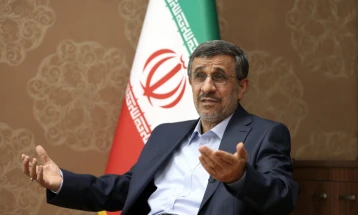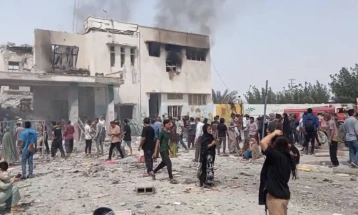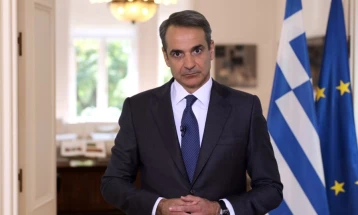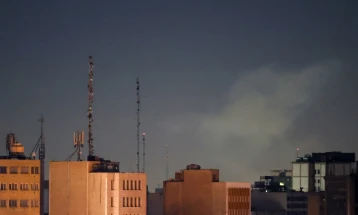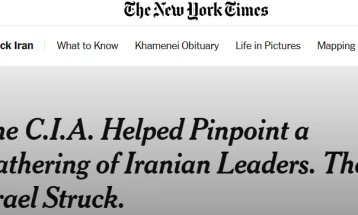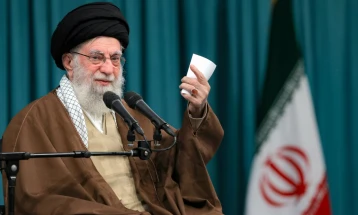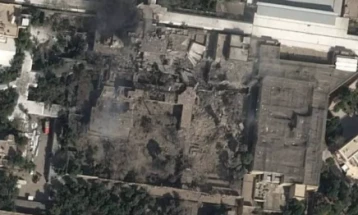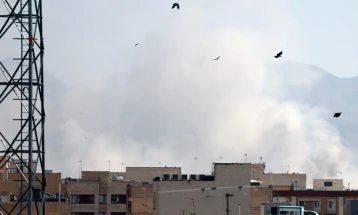Putin ordered defence chief to make dirty bomb claims in phone calls
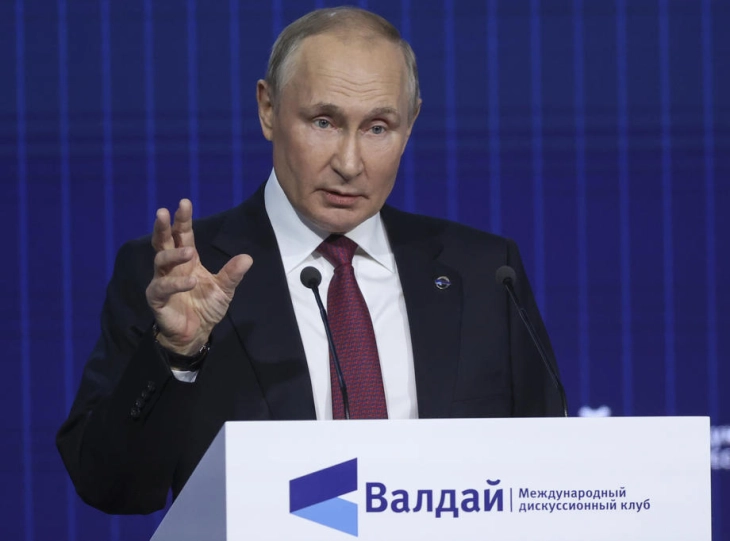
Moscow, 28 October 2022 (dpa/MIA) - Russian President Vladimir Putin personally ordered Defence Minister Sergei Shoigu to call his Western counterparts this week to warn them of Kiev's plans to potentially deploy a dirty bomb in Ukraine and blame it on Russia.
"It was me who ordered Shoigu to call all his counterparts and inform them about it," Putin said in a speech at the Valdai Discussion Club on Thursday, adding that he even knew the rough location of where Kiev was building the bomb.
The minister followed Putin's directive and made the unsupported allegation in a series of phone calls with defence chiefs from NATO countries such as the US, Britain, France and Turkey.
The oft repeated claim in recent days that Kiev could drop a dirty bomb - meaning a conventional explosive device that disperses radioactive material - marks a new escalation in Moscow's war rhetoric.
According to the Kremlin, the deployment on Ukrainian territory would be a false flag operation designed to discredit Moscow. Kiev's allies have firmly rejected the claim as unfounded propaganda.
But it has nevertheless raised fears in the West and Ukraine that Russia might detonate a dirty bomb to blame the Ukrainian side and create a pretext for military escalation, including the use of tactical nuclear weapons.
US Defence Secretary Lloyd Austin said on Thursday that Washington saw no suggestion that Putin has decided on the use of dirty bomb, "nor have we seen any indications that that the Ukrainians are planing such a thing."
The International Atomic Energy Agency (IAEA) said it would send an observer mission to Ukraine to detect possible undeclared nuclear activities.
"The best way to dispel any doubt is to allow the inspectors in, and this is what we are going to do," IAEA chief Rafael Grossi said in New York.
Earlier on Thursday, Russia threatened to attack US commercial satellites if they continue to be used to share information with Kiev regarding Moscow's struggling military efforts in Ukraine.
It is a dangerous move for the US to use commercial satellites for military conflicts, Russian Foreign Ministry representative Konstantin Vorontsov told the United Nations, according to state news agency TASS.
"The quasi-civilian infrastructure can become a legitimate target of a counter-attack," Vorontsov warned.
Satellite images play an important role in the war in Ukraine. Several Western nations are providing Kiev with satellite data for defence purposes. Since Russia's satellite network is less extensive, Ukraine has a slight intelligence advantage in this area.
White House national security spokesman John Kirby said that "any attack on US infrastructure will be met with with a response and will be met with a response appropriate to the threat that's posed to our infrastructure."
In Ukraine, authorities in Kiev said residents would see more blackouts after a new attack on the city's power supply.
A Russian strike on a plant in the surrounding area caused "serious damage," utility Yasno said. As a result, about one-third of the necessary power was missing for the metropolis of millions, meaning half the city could face extended blackouts, it said.
On the Black Sea peninsula of Crimea, annexed by Russia in 2014, a power station was attacked by a drone, said Mikhail Razvozhaev, the governor appointed by occupying Russian forces.
During the overnight attack in Sevastopol, a transformer caught fire, but it had not been connected to the grid at the time, according to Razvozhaev.
No one was injured and there was no impact on the port city's power supply. The drone was intercepted on its approach to the power plant, the governor wrote on Telegram. Sevastopol is the base of the Russian fleet in the Black Sea.
There have been several blasts at military installations and drone attacks reported from Crimea over the past months.
Ukraine doesn't officially claim responsibility for the attacks, but the incidents suggest that the country is capable of targeting objects far beyond the front line.
